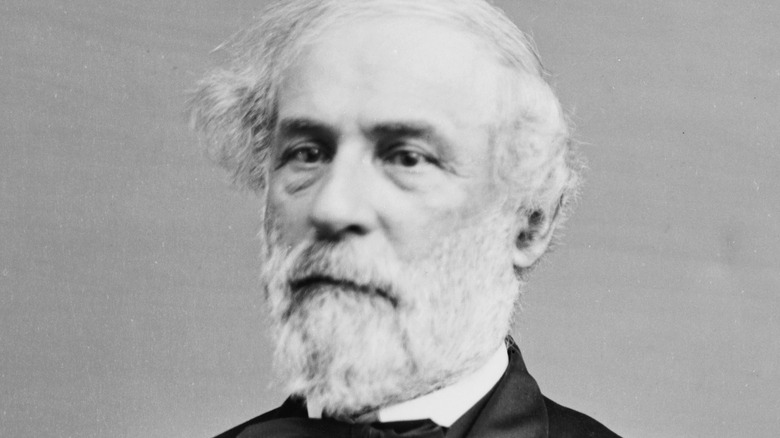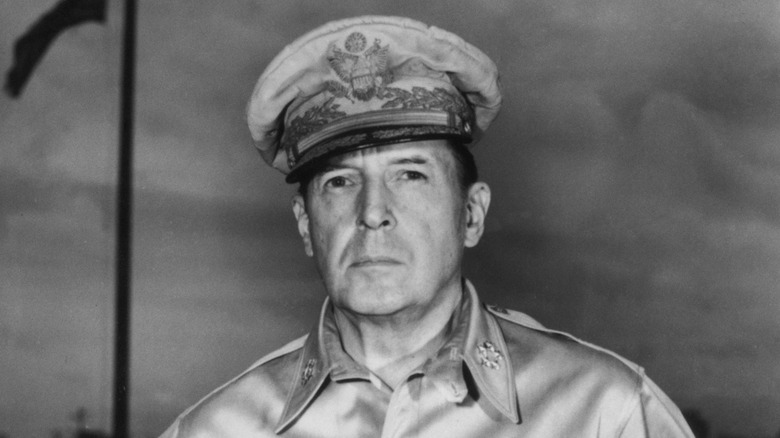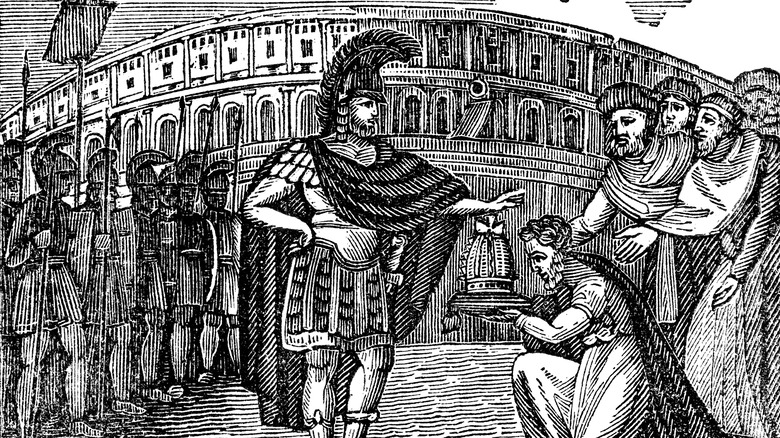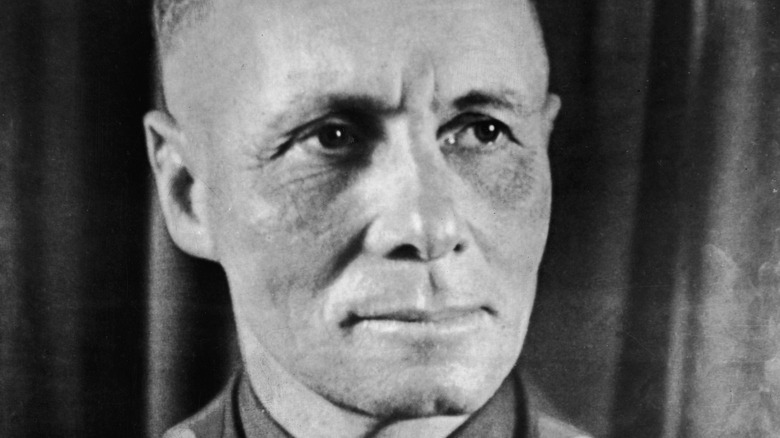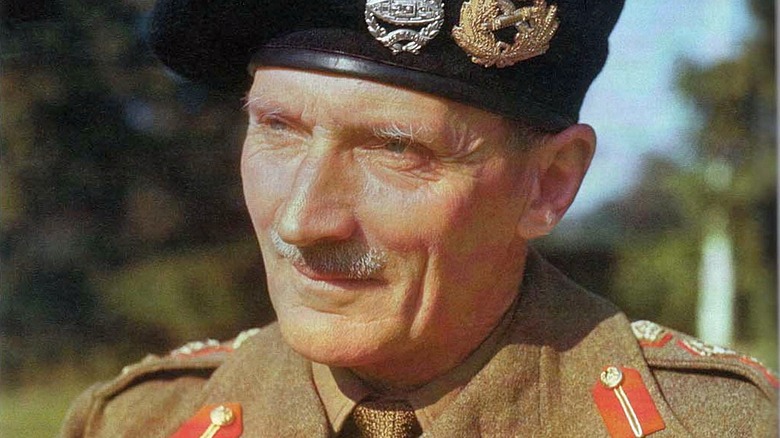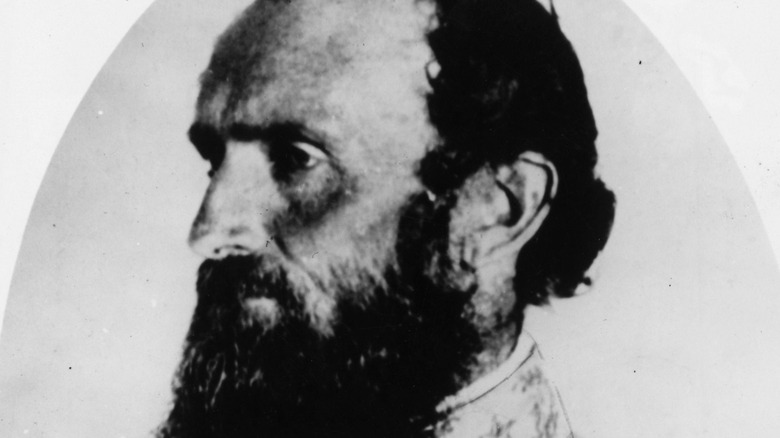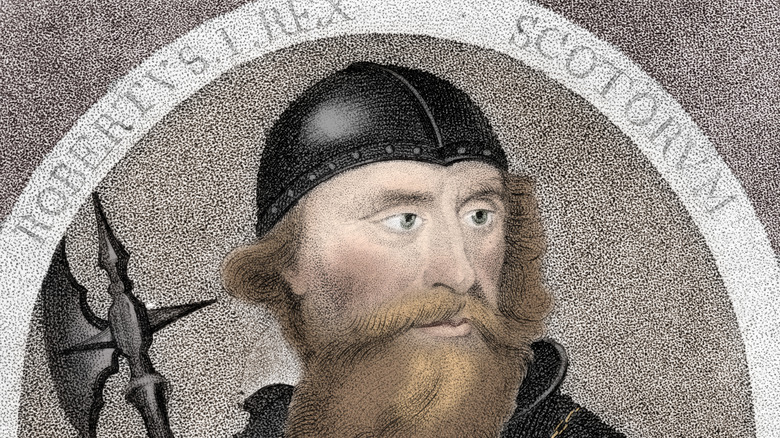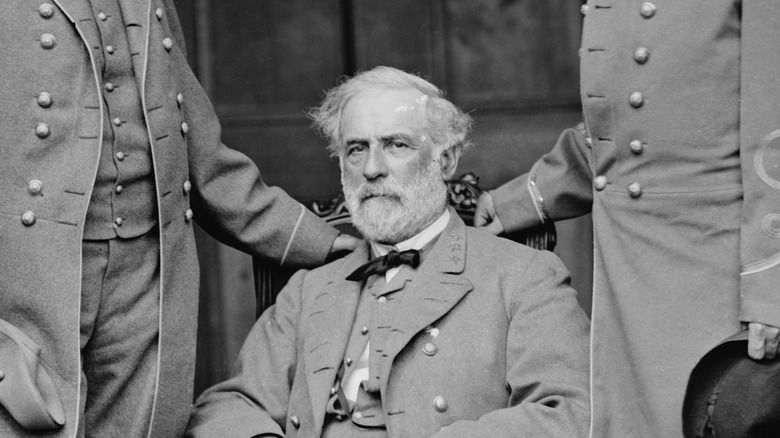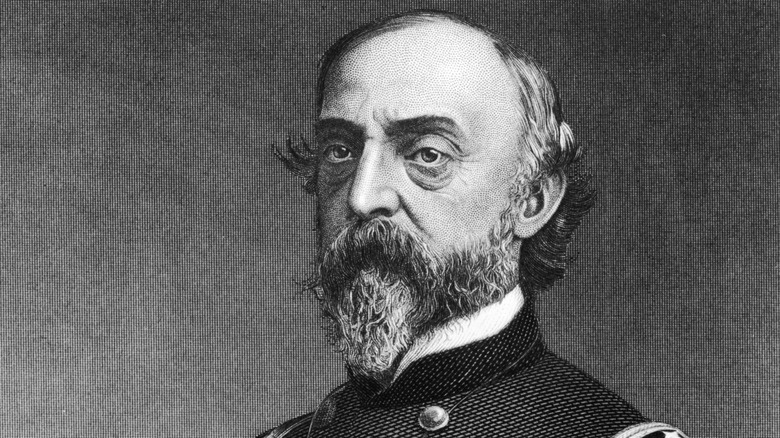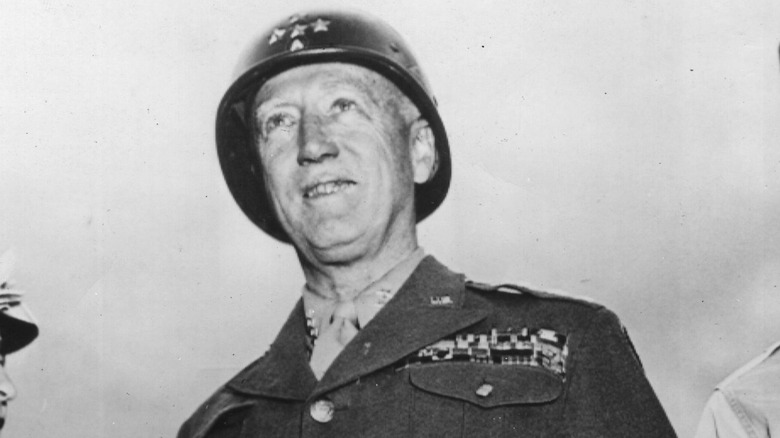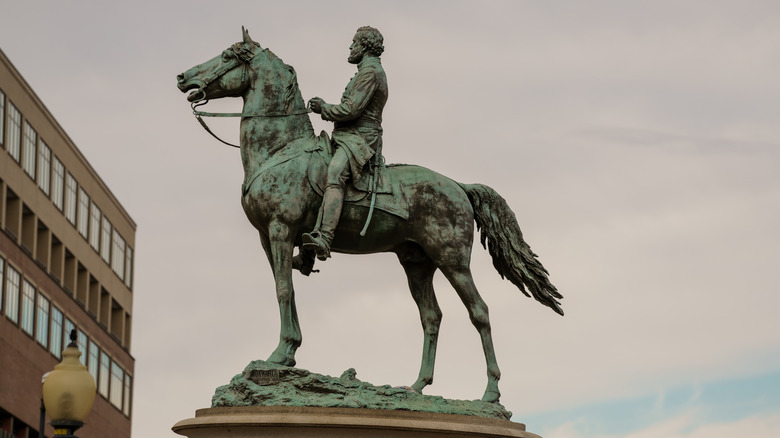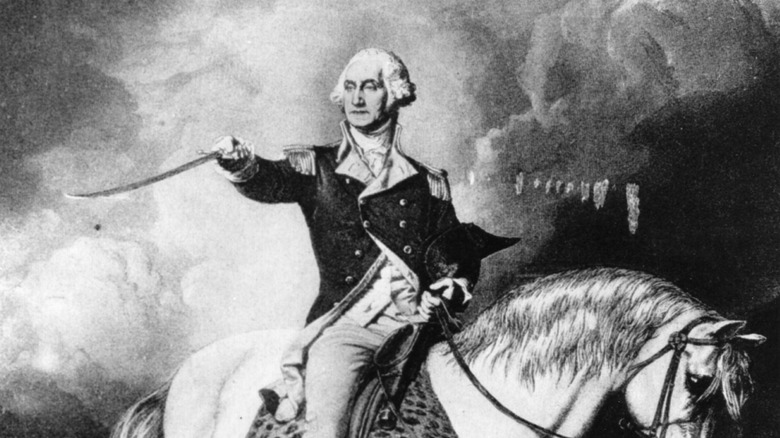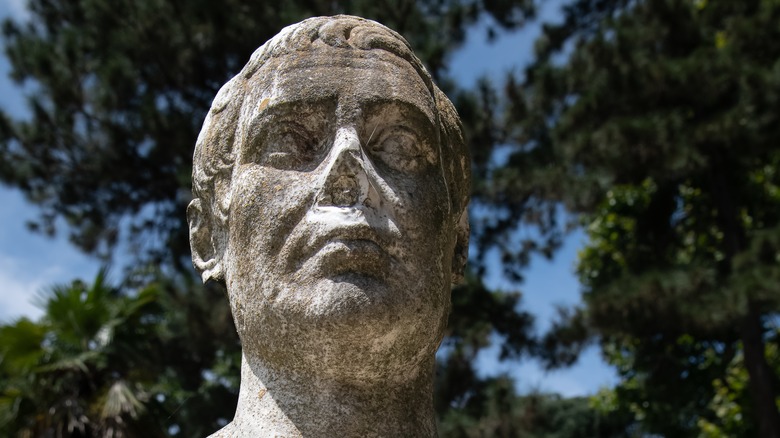The Most Overrated And Underrated Military Commanders Of All Time
Every dorky armchair general knows how they would've fought and won history's most famous battles, as well as which commanders throughout history were great and which were awful. But as is always the case, misinformation abounds. Some generals are undeservedly worshiped as pioneering geniuses when they might've lost as often as they won, or when their subordinates or enemy stupidity might be as responsible for their famous victories as they themselves. Other military leaders — who are forgotten or maligned as failures — might deserve a lot more credit than they usually get.
So here's a deep dive to set the record straight on some of the most famous names in the history of warfare. (Keep in mind that "overrated" doesn't necessarily mean "bad" and "underrated" doesn't necessarily mean "good"). Pull out the maps and sabers: These are some of the most overrated and some of the most underrated generals of all time.
Overrated: Douglas MacArthur
"I shall return." According to History, those were the famous words uttered by Douglas MacArthur, the commander of the U.S. Army in the Pacific during World War II, when he was forced to abandon the Philippines in 1942. Two years later, he made good on the promise, landing on the islands with overwhelming force and routing the enemy. In the next war, MacArthur's landings at Inchon routed the North Koreans and allowed the coalition to push them to their own northern border, where his offensive was stopped only by the arrival of the Chinese army.
Thing is, Time says MacArthur was something of a megalomaniac, who dismissed criticisms and heaped praise on himself while ignoring the huge contributions to his victories provided by others. In 1932, he led the Army against World War I vets demanding overdue pensions during the Depression. In his first round with the Japanese in the Philippines, MacArthur's short-sightedness resulted in his entire Air Force being wiped out in minutes. Later in the war, his indecisiveness about landing Mindanou led to 7,000 American casualties at Peleliu. In the Korean War, the Inchon landings were indeed a smashing success (via Britannica), but the article rightfully criticizes how MacArthur pointlessly shelled Seoul right after, leading to huge civilian deaths, before charging into the teeth of a Chinese army he had no excuse not to see and getting his whole army thwacked.
He wasn't a bad general. Just nowhere near as brilliant as he himself would have you believe.
Underrated: Belisarius
World History says Flavius Belisarius (505-565 A.D.) was born a peasant and rose to become perhaps the greatest military commander the Byzantine Empire (formerly the Eastern Roman Empire) had ever seen. He joined the army under Justin I and was placed in command of the whole force by the next ruler, Justinian. With the whole Byzantine military at his disposal, Belisarius suffered a crippling defeat at Callinicum, but he was hardly down for the count.
Upon returning home, he proceeded to sharply suppress the Nika riots in Constantinople. According to History Hit, Belisarius then proceeded to smash the Vandals at Ad Decimum and Tricamarum. Later, he seized Sicily and stormed through the Italian mainland, recapturing many of the old Roman Empire's central lands from Ostrogoth occupiers. By the time of his death in 565, Belisarius had helped Justinian I massively expand the size of the empire with triumphant conquests in modern Italy and northern Africa, reforming much of the ancient Roman ring around the Mediterranean.
Belisarius was living proof that although the Western Roman Empire had collapsed by the time of his birth, the old Imperial spirit lived on. Those who do remember him call him "The Last of the Romans" for embodying the best attributes of Rome's past military glory, but it's a shame he's not more of a household name. The Byzantines wouldn't last forever, of course, but that's only because Belisarius was (barely) a mere mortal.
Overrated: Erwin Rommel
Using the same brand of hard-driving aggression and maneuver warfare he developed while helping take down France the year before, Britannica says that Erwin "The Desert Fox" Rommel, commander of Hitler's Afrika Korps in World War II, humiliated the British for over a year until overwhelming numbers forced him to abandon his impressive North African campaign. Now a war hero, Rommel was placed in charge of developing the Atlantic Wall: the German defensive line that resisted the Allied D-Day landings in June 1944. A month later, the noble anti-Nazi took his own life after being exposed as a ring leader in the plot to assassinate Hitler.
Yeah, not so fast. The National WW2 Museum has the receipts on Rommel's actual performance in Africa: one characterized by him dismissing logistics as an annoyance, rather than a necessity or even an opportunity. As a result, he chased after speedy tactical triumph at the expense of strategically valuable gains, and he routinely outran his supply lines, leaving frontline troops out of gas and dangerously exposed to enemy counterattacks. Don't even bother defending his troops' performance in Normandy, since that was one of Germany's greatest defeats, but to comment on the idea that Rommel was secretly an anti-Nazi: The same article debunks the idea soundly, saying Rommel's career fortunes were owed to his "worshipful" relationship to Hitler. Worse still, The United States Holocaust History Museum says that the killing of Jews in Africa only happened with Rommel's full knowledge and blessing.
Underrated: Bernard Montgomery
Nobody thought Monty was a better general than Monty himself. Owlcation claims that the British commander became arrogant after beating Rommel in 1942. But for the rest of World War II, his slow overplanning constantly allowed his Americans allies, who hated him, to seize glory that should've been his. The article says it happened in Sicily in 1943 and Normandy in '44. He bungled the overcomplicated Operation Market Garden that September, then took credit for the Battle of the Bulge despite having little to do with it. He spent so long planning to cross the Rhine in 1945 that American units had time to luck into an intact bridge and cross the river weeks before he was planning to (via US Army Corps of Engineers).
So goes the story. But while it's true Monty was often infuriating to work with, he had plenty of good qualities. The National Army Museum says he was vital to the 1940 Dunkirk evacuation that saved the army. In 1942, the article says his tide-turning victory at the Second Battle of El Alamein was well planned, hard fought, and fairly won. Meanwhile, Liberation Route says that Monty's Operation Market Garden had the potential to end the war by Christmas, but failed due to many reasons, many of which can't be pinned on Monty. Overall, Monty deserves credit for giving Hitler a lot of trouble.
Overrated: Stonewall Jackson
Despite the nickname praising his defensive talents, Thomas J. "Stonewall" Jackson, one of Confederate general Robert E. Lee's most trusted subordinates in the Civil War, was an attacker through and through. In the Shenandoah, The National Park Service says Jackson humiliated a much larger Union force with shocking aggression and speed. At Chancellorsville, The American Battlefield Trust details how Jackson unexpectedly burst onto the exposed flank of the Union 11th Corps and routed the whole force, turning the tide of battle despite Lee being heavily outnumbered. Stonewall was mortally wounded that same day, but he died a legend.
But the real story is, of course, a bit more complicated. Right after his triumphant Shenandoah campaign, Jackson dropped the ball hard by freezing at the Seven Days' Battles near Richmond (via American Battlefield Trust). At Fredericksburg, when Stonewall actually had a stone wall to hide behind, the same site says his line was broken by the enemy. These two battles were Confederate victories despite Jackson's performance, not because of it.
In an episode of "Checkmate Lincolnites," Atun Shei Films argues that Jackson's legendary aggression had a detrimental effect on the Southern war effort, as it inspired other Confederate leaders, seeking battlefield glory, to recklessly hurl their men at a much larger enemy that always came back. These unwise attempts to "one-shot" bigger foes only led to irreplaceable casualties. "I like Jackson," he says. "But I think his early death was the best thing that could've happened to his reputation."
Underrated: Robert the Bruce
In 1995's "Braveheart," Robert the Bruce (Angus MacFayden) is portrayed as something of a weaselly coward who, after briefly trying to stand up to King Longshanks, betrays William Wallace (Mel Gibson) to his death. He does lead the resistance in the final scene of the movie, but you never really get to see much of it, and by that point you have a bad taste in your mouth about the guy anyway.
But nobody ever accused "Braveheart" of being a historically accurate movie. In reality, Robert the Bruce was every bit the heroic Scottish conqueror the movie tried to make Wallace out to be. After a string of mutilating defeats that led to the capture of his family and the execution of three brothers in 1306, Britannica says Robert became a fugitive. But he came back, rallied powerful support, and captured Perth from an English garrison in 1313. At the Battle of Bannockburn the following year, the BBC says Robert the Bruce led a comparatively tiny Scottish force of barely 6,000 men against 25,000 troops under the English banner, and he won handily. His rule now secured, the Britannica article says he raided northern England for years before forcing his former foes to recognize his rule, and Scottish independence.
Can someone please explain why William Wallace got a movie made about him instead of this guy?
Overrated: Robert E. Lee
Almost certainly the most famous general of the American Civil War, ol' Marse Robert's battlefield prowess is the stuff of legend. He was able to routinely thwart Union armies many times his size with brilliant maneuvers at battles like Second Manassas and Chancellorsville, single-handedly prolonging both the war and the Confederacy. In the later years of the conflict, the resistance put up by his Army of Northern Virginia gave his opposite number, Ulysses S. Grant, the greatest and bloodiest challenge of his career. After the war, Lee's humility and grace towards his former foes earned him widespread respect.
So goes the story, anyway. In reality, the Washington Post says Lee was an overaggressive commander who, despite being heavily outnumbered, regularly threw irreplaceable numbers of men into unwinnable situations, and for no gain. As a result, both of his offensives into northern territory ultimately failed, at the battles of Antietam (1862, per American Battlefield Trust) and Gettysburg (1863, according to History).
Of course, none of this makes Lee a bad general, per se. There's no denying the importance of his defensive victories at the Seven Days Battles, Second Bull Run, Fredericksburg, and Chancellorsville (via American Battlefield Trust). But Vlogging Through History argues that any reasonably competent commander could've done what he did: in a nutshell, lose slowly.
Underrated: George Meade
History says that Confederate general Robert E. Lee made several mistakes in the Battle of Gettysburg, producing a tide-turning defeat. Union general George Gordon Meade, a good-not-great commander, lucked out when his larger army seized easily defensible positions on high ground on July 1, 1863. But after the battle, the old "snapping turtle" let Lee get away, allowing the war to continue for two more years. Thanks a lot, Meade.
So goes the story, at least. Thing is, Lee's defeat at Gettysburg was as much the result of Meade's excellent generalship as it was the result of Lee's overconfidence and ineptitude. Yes, Lee screwed up badly with Pickett's Charge on the third day (via American Battlefield Trust). But Meade only won because at a Council of War the previous night, he predicted that Lee would test his center, and reinforced it accordingly (via National Park Service). Clearly, he was dead on. As far as his failure to chase Lee down after the battle, History says it would've been a reckless move given how mauled his army was after three days of bloody fighting. The decision to stay back and lick his wounds was wise, not cowardly.
Oh, and as for the idea that Meade could only defend fortified high ground with superior numbers? At the Battle of Fredericksburg months earlier, he ordered a charge that broke the lines of one Mr. Stonewall Jackson (via American Battlefield Trust). He was chosen to lead the Army because of performances exactly like that.
Overrated: George S. Patton
Britannica says General George S. "Old Blood-And-Guts" Patton first cut his teeth with the Armored units in the First World War. In the interwar period, he was a huge proponent of the continued development of the American military's anemic tank arm. In World War II, he landed victoriously in North Africa, routed the Axis in Sicily, lead the Allied breakout in Normandy that led to the collapse of the German army in France, rescued the besieged 101st Airborne in Bastogne during the Battle of the Bulge, and led tank divisions into the German heartland at the end of the war. Easily one of the most famous American generals of World War II, Patton is often praised for his tough-guy attitude, hard-driving aggression, and shock-and-awe tactics.
However, regardless of what you saw in 1980's "Patton," in which German commanders were shown losing sleep over what the unstoppable general would do next, there's not much evidence to suggest his enemies thought much of his talents. Harry Yeide argues as much in "Fighting Patton: George S. Patton Jr. Through the Eyes of His Enemies" (as excerpted and summarized by Hoover), saying that Patton was respected enough by the enemy but hardly obsessed over. "Among this group [German Panzer commanders]," he writes, "Patton probably would have been merely above average."
So he was far from bad, but it's definitely worth noting that he won almost all his victories against a German army that was heavily outnumbered and already collapsing.
Underrated: George H. Thomas
The American Civil War produced many of the most famous military commanders of all time. The names are legendary. Grant. Lee. Jackson. Sherman. The list goes on. But one man who stood head and shoulders above most when it came to ability, ended up being too humble to write memoirs to beef up his legacy after the war. This lead to the name George Henry Thomas being largely forgotten (as per the American Battlefield Trust).
According to the article, the Union general, a Virginian who chose his country over his state, first came to national attention at the Battle of Chickamauga in late summer 1863. There, his excellent holding action helped prevent the route of the retreating Union Army. At the Battle of Nashville in December 1864, the same site says "The Rock of Chickamauga" so thoroughly demolished the Confederate army of John Bell Hood that he effectively brought the war to an end in that region for good. After the war, Thomas earned the thanks of Congress and high acclaim from his superiors, according to Smithsonian Magazine.
He did admittedly own slaves before the war. But as Encyclopedia Virginia points out, he was so moved by the courage of African American soldiers during the conflict that he changed for good, becoming a Civil Rights advocate and a hated enemy of the KKK. We get that you valued your privacy, George. But if you didn't want to be remembered, you shouldn't have been so awesome. Sorry.
Overrated: George Washington
Don't get your powdered wigs in a twist. Few would argue that the first U.S. President wasn't a great political leader, whom History says managed to hold his fledgling, suffering army together against all odds during the American Revolution.
He just wasn't a great battlefield commander. Washington Crossing Park details an interview with Dr. Adrienne Harrison. "Washington was a great strategic leader who was very good at seeing the big picture and playing the long game," the historian says. "But tactically, he was terrible, and he never got better as the war went on." She details numerous battlefield defeats Washington suffered because he liked overcomplicated plans and frequently placed his men in unnecessarily difficult positions. Even his legendary crossing of the Delaware River only succeeded because of dumb luck: Hessian troops had mistaken an earlier patrol for a more serious attack and reinforced the wrong sector, allowing Washington to seize a victory he probably shouldn't have gotten away with.
He wasn't completely inept in the field, though. Harrison concedes that while his tactical talents weren't much to write home about, he had a good eye for larger strategy, like dragging out the American Revolution until the British were too tired of it to keep on fighting. He also respected his advisors and often heeded their input. Perhaps it's that humility — knowing what he could and couldn't do without letting arrogance blind him — that made Washington a far better political leader than a general.
Underrated: Pompey
World History Encyclopedia says Julius Caesar had won astonishing victories in Gaul (modern day France), and Briton, before crossing the Rubicon to begin the civil war that would make him a dictator. He was opposed by Pompey: a senator who fled Rome to raise armies and defend the Republic. But Caesar triumphed in Spain before clashing with Pompey in Greece and winning the conflict. Thus ended both Rome's Civil War (49-45 B.C.) and the Republic itself. Caesar was just too brilliant to stop.
That's the common narrative, at least, and most of it is true. Julius Caesar was indeed an unparalleled military genius (data scientist Ethan Arsht used hard numbers to determine the greatest commanders in world history, and found that Caesar was second only to Napoleon Bonaparte). Which is why it's all the more impressive that Pompey actually had Caesar on the ropes for a good chunk of the civil war.
It's true. Just look at the Battle of Dyrrachium, which War History Online says very nearly became the undoing of Caesar. He had barely managed to cross the Adriatic Sea with a now-starving, smaller army. Both sides built extensive fortifications to control the local food supply and besiege the other. In the end, Pompey forced Caesar, out of options and exhausted, to flee. Unfortunately, he didn't capitalize on the victory and ultimately lost the war at Pharsalus. But still, anyone capable of making Julius freaking Caesar run for his life in a fair fight deserves high praise.
